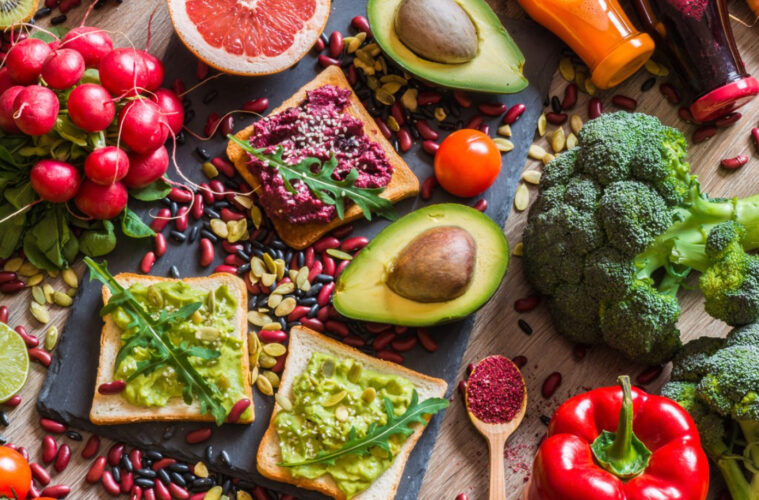As the climate crisis worsens and environmental issues continue to rise, many individuals are re-evaluating their consumption habits and incorporating behaviors that can reduce their environmental footprint on a day-to-day basis. While some may want to include a vegetarian diet to create a positive impact, some may worry about the financial sustainability of eating plant-based.

Photo Credit: Food NDTV (August 2017)
A vegetarian diet can often be perceived as financially demanding; however, the truth is that vegetarianism can be very accommodating to a range of budgets and lifestyles! With a little extra planning, a vegetarian diet can be appropriate for many different types of individuals and can provide ample long-term health benefits. Consider the biggest dietary factor that’s being cut out – meat. Cutting out meat is a huge cost factor and allows more money to be allocated to staple items like a variety of fresh fruits, vegetables, grains, and legumes.
If you want to learn more about how to adopt a vegetarian diet while on a budget, here are six tips you can follow!
Buy in Bulk Portions
Buying in bulk portions is always cheaper! When buying in bulk portions, think of staple vegetarian ingredients such as nuts and seeds, legumes, whole grains, and oats. Buying in bulk is extremely beneficial because you can buy exactly how much of the given ingredient you want and tailor portions specifically to your diet. According to a study by Bulk is Green Council, bulk buying can save a shopper approximately 89 per cent compared to buying packaged foods, as well as reduces material waste and carbon dioxide emissions from packaging production.
Go to Asian supermarkets
Asian supermarkets offer a great variety of staple vegetarian products that are often far better priced compared to the same products provided by Western supermarkets. Products such as tofu, legumes, coconut milk, and spices are offered plenty.
Don’t Buy Everything Organic
Buying organic produce consistently can get really expensive and contribute a lot to an overall grocery bill. To reduce spending hefty amounts, be selective on the types of products that are bought organically and follow the Environmental Working Group’s list of the most pesticide-induced conventionally grown produce.
Explore Farmer’s Markets
Farmer’s markets are a great way to shop locally grown fruits and vegetables at fair prices, all while supporting the local economy. Search online for local Farmer’s Markets, their peak seasons of operating, and for what’s being served at the market.
Meal Prep and Plan Beforehand
Meal prepping and planning beforehand is the key to sustaining a successful vegetarian diet! Since buying in bulk portions is often cheaper, planning meals ahead is important to make sure that no produce and perishable ingredients are leftover and gone to waste. Planning beforehand can include freezing bulk ingredients and systematic portioning, so that produce doesn’t spoil quickly.
Buy In-Season Produce
Focusing on buying in-season produce increases the chance of buying ingredients on sale. In-season produce that’s discounted can be bought in larger quantities, and then frozen to be used at a later date. Shopping at a local farmer’s market will also ensure that all produce is in season.
Avoid “Meatless” Meat and Vegan Products
Buying “meatless” meat, “dairy-free” cheese and many other plant-based specialty items are absolutely not necessary to eat a delicious, cost-effective vegetarian diet! Meat and cheese substitutes are usually the most expensive ingredients in relatively small quantities, so limit them when possible. If plant-based specialty items need to be bought, keep an eye on sales and close-dated products that become discounted. When buying these close-dated items, freeze them appropriately to preserve their lifespan.
There are plenty of ways one can eat a vegetarian diet without breaking the bank. With a little planning, researching, and preparing ahead, living a vegetarian lifestyle on a budget can be sustainable and fulfilling!
Published by HOLR Magazine.


